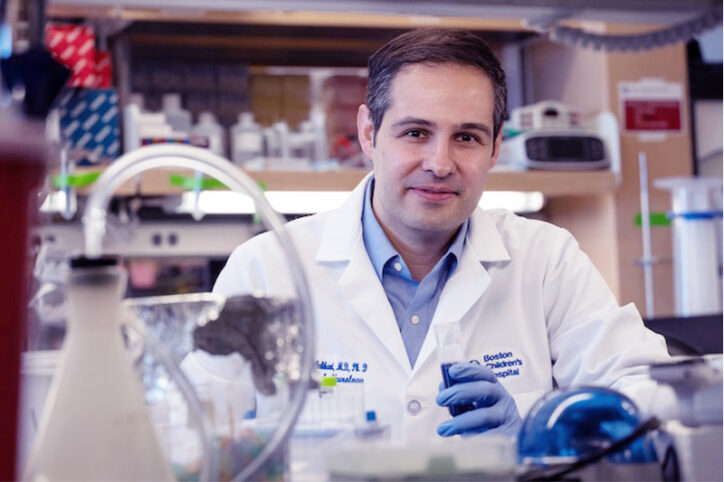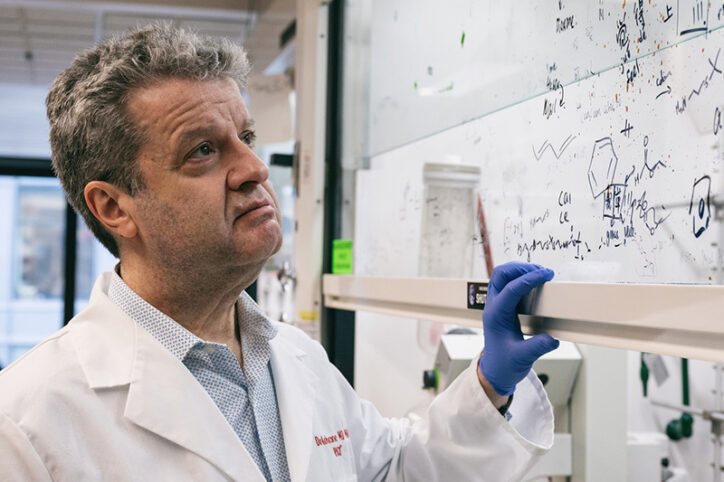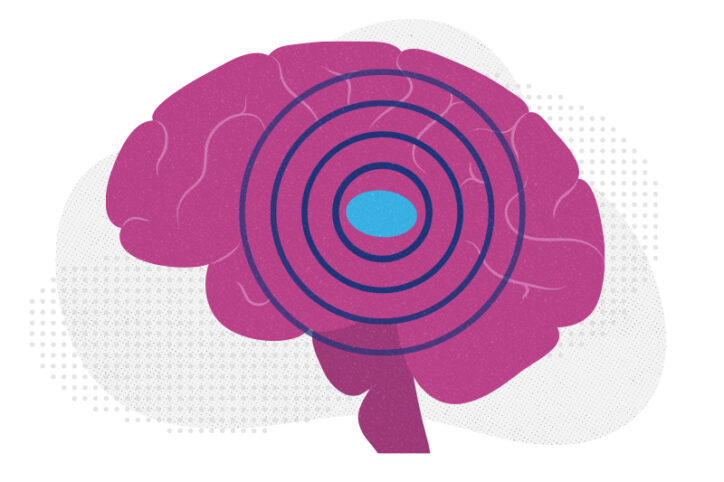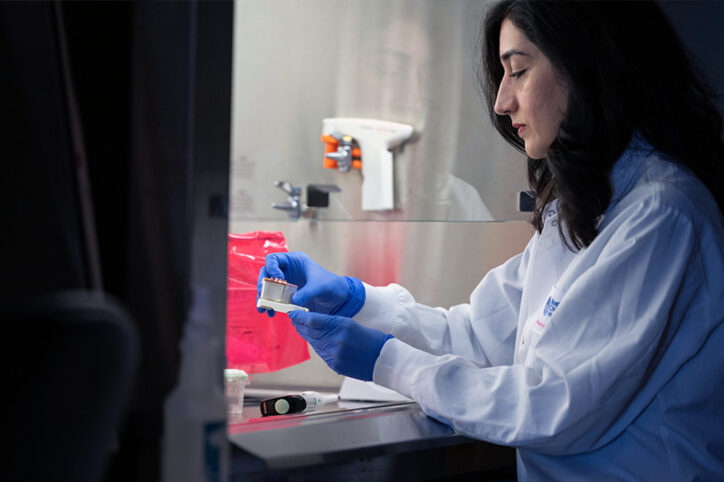Archive for Nancy Fliesler
The journey to a treatment for hereditary spastic paraplegia
In 2016, Darius Ebrahimi-Fakhari, MD, PhD, then a neurology fellow at Boston Children’s Hospital, met two little girls with spasticity and decreased muscle tone in their legs, which affected their walking. Both girls, Robbie Edwards and Molly Duffy, had been diagnosed with hereditary spastic paraplegia (HSP), which comprises a group of more than 80 genetic ... Read More about The journey to a treatment for hereditary spastic paraplegia
A safe, pain-specific anesthetic shows preclinical promise
All current local anesthetics block sensory signals — pain — but they also interrupt motor signals, which can be problematic. For example, too much epidural anesthesia can prevent mothers in labor from being able to push. Prolonged local anesthesia after orthopedic surgery can leave patients unable to participate in rehab. Researchers at Boston Children’s Hospital ... Read More about A safe, pain-specific anesthetic shows preclinical promise
Tagged: anesthesia, critical care, orthopedics, pain
A new druggable cancer target: RNA-binding proteins on the cell surface
In 2021, research led by Ryan Flynn, MD, PhD, and his mentor, Nobel laureate Carolyn Bertozzi, PhD, opened a new chapter in biology, characterizing a new kind of player on the cell surface: glycoRNAs. Extending this discovery recently in Cell, Flynn and colleagues showed that glycoRNAs form highly organized clusters with RNA-binding proteins on the ... Read More about A new druggable cancer target: RNA-binding proteins on the cell surface
Forecasting the future for childhood cancer survivors
Children are much more likely to survive cancer today than 50 years ago. Unfortunately, as adults, many of them develop cardiovascular disease, secondary cancers, or both, believed to result from the toxic effects of chemotherapy and radiation. But the full risk picture for survivors hasn’t been clear. “Patients want to know how long they’ll live ... Read More about Forecasting the future for childhood cancer survivors
Tagged: brain tumor, cancer, epidemiology, leukemia, research
Genetic causes of congenital diarrhea and enteropathy come into focus
Congenital diarrheas and enteropathies are rare and devastating for infants and children. Treatments have consisted mainly of fluid and nutritional management. But in recent years, targeted dietary and drug therapies have emerged based on genetic discoveries. Now, research led by Boston Children’s Hospital, The Hospital for Sick Children in Toronto, and UCLA takes a major ... Read More about Genetic causes of congenital diarrhea and enteropathy come into focus
Genomic sequencing transforms a life: Asa’s story
Asa Cibelli feels like he’s been reborn. The straight-A middle schooler plays basketball and football, does jiu jitsu, is learning guitar, and can solve a Rubik’s cube in 40 seconds flat. But he once wondered if he’d ever feel better. From birth, Asa experienced chronic abdominal pain and severe diarrhea. The many doctors he saw ... Read More about Genomic sequencing transforms a life: Asa’s story
The thalamus: A potential therapeutic target for neurodevelopmental disorders
Years ago, as a neurology resident, Chinfei Chen, MD, PhD, cared for a 20-year-old woman who had experienced a very small stroke, affecting only the thalamus. “It was so tiny that she wouldn’t have noticed any symptoms had the stroke been in any other area of the brain,” says Chen, who is now an investigator ... Read More about The thalamus: A potential therapeutic target for neurodevelopmental disorders
Tagged: autism, developmental medicine, neurology, neuroscience
Partnering diet and intestinal microbes to protect against GI disease
Despite being an everyday necessity, nutrition is something of a black box. We know that many plant-based foods are good for us, but we don’t always know why. Our intestinal microbiome, which helps break down these foods once we consume them, is another black box. What role do our gut bacteria play? Seth Rakoff-Nahoum, MD, ... Read More about Partnering diet and intestinal microbes to protect against GI disease
A better treatment for endometriosis could lie in migraine medications
Endometriosis is a common, mysterious, often painful condition in which tissue similar to the uterine lining grows outside the uterus, forming lesions in locations such as the fallopian tubes, ovaries, and pelvis. These lesions can cause severe pain during periods, heavy menstrual bleeding, pelvic or abdominal pain, and sometimes painful bowel movements and urination. Existing ... Read More about A better treatment for endometriosis could lie in migraine medications
Modeling urinary tract disorders on a chip: Zohreh Izadifar
When a new tissue sample arrives from the Department of Urology, the Boston Children’s Hospital lab of Zohreh Izadifar, PhD springs into action. The tissue, from a child with urinary tract pathology, is whisked into the tissue culture room. Under a hood, lab members Dasvit Shetty, PhD, and Gretchen Carpenter, MSc, carefully isolate the cells ... Read More about Modeling urinary tract disorders on a chip: Zohreh Izadifar











